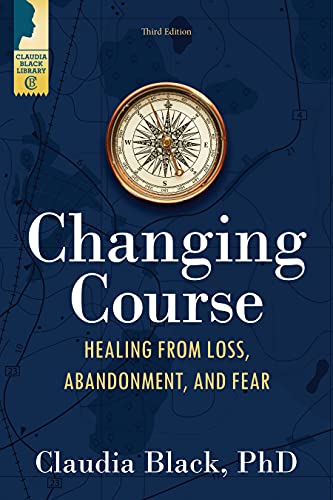Listen to this episode of the Focus with Marlene Podcast:
Get caught up with all episodes in the Developing a New Focus series.
Do you remember when you were a kid and couldn’t wait to leave home? You couldn’t wait to do things the way you wanted without somebody telling you what you could or could not do.
But whether we like it or not, we take our families of origin with us. That includes our typical way of communicating.
If you grew up in a nurturing and loving home, you may have some anxiety when you leave home, but you recognize and appreciate the values and discipline taught by your parents that you are taking with you. It creates a foundation to build on.
If you grew up in an emotionally or physically abusive home, leaving home represents freedom.
However, good or bad, we tend to repeat what we learned in our family of origin.
Patterns of communication, whether through modeled behavior or words spoken, will be repeated from generation to generation until we recognize and replace them.
The only way we keep from repeating what we learned as children is through processing and resolving the unfinished business of our childhood. That includes untangling the web of conflicts that don’t go away just because we have left home.
Families have an enormous influence on our lives.
If we came from a supportive home, we learn that disputes can be settled, and we can set boundaries without hurting someone else. We learn how to engage with others even if it is imperfect. We know we can trust and get close to others without always feeling suspicious and wary.
It is also in our families of origin where we develop a sense of worth and esteem and incorporate the values and principles that were important to our parents. We may modify or reject them later, but they are the basis for our first core beliefs about life.
We do not have to repeat the patterns we grew up with; but to replace them, we must first be aware of them. Only then can we choose different rules and values for our life.
If you are constantly having relationship problems that repeat themselves over and over again, look back to your family of origin. Take time to explore and understand those early relationships. What was positive and what was negative?

Dysfunctional Families
 In her book, Changing Course: Healing from Loss, Abandonment, and Fear, Claudia Black, Ph.D., helps us understand how dysfunctional families have such a long-standing impact on our lives.
In her book, Changing Course: Healing from Loss, Abandonment, and Fear, Claudia Black, Ph.D., helps us understand how dysfunctional families have such a long-standing impact on our lives.
If we are unable to go back and face difficult childhood issues, we will keep our defenses up to avoid feeling the pain today. If we grow up with fear and shame, we become adults who live with fear and shame and a pervasive sense of loss.
Recovery happens when we recognize we want to make changes and take those steps to make it happen.
You do not need to remain a victim of a dysfunctional family.
Don’t Talk, Don’t Trust, Don’t Feel
Dr. Black indicates that the underlying forces that create a sense of loss are denial, rigidity, isolation, and shame.
Natural and necessary losses are balanced with comfort and support, and we grow stronger and healthier because of them. In a severely dysfunctional family, one parent intentionally creates a loss, (example giving away your pet) and the other parent denies the significance of what happened.
Loss is not always the result of what does happen – sometimes it is the result of what does not happen.
When not given support, we feel sad, unloved, and abandoned. If this occurs while growing up, it makes it very difficult to develop a positive self-esteem.
Emotional abandonment occurs when the parent is not emotionally available to the child on a consistent basis. Parents never say, “I love you.”
Physical abandonment occurs when a child has repetitively missed meals or been left alone, unsupervised for hours or days. We minimize or deny our abandonment.
Physical and sexual abuse are major boundary violations. When we treat a child as an object and not a person, we are physically abandoning our child. Not feeling secure, protected, or safe – both psychologically and physically – creates the greatest loss for children.
Denial: The Rule of Silence
Denial is a defense mechanism, a natural response to protect against pain. When someone feels helpless to alter their situation or is ashamed of what is happening, they will resort to denial.
Children learn it is not okay to speak out. We are to pretend things are different than what they are. Denial can be identified when people discount, minimize or rationalize their feelings and pretend things are different than they really are.
Rigidity: Don’t Question – Don’t Think
In troubled families, parents are usually dogmatic in their thinking, “This is the way it is and there are no exceptions.”
Children are seen – not heard.
The family rules are: Don’t ask or question. Don’t trust. Don’t feel. Never challenge authority.
Here, parents are unrealistic, expect too much from their children for their age-appropriate ability, and rarely offer rewards or acknowledgement to the child who obeys.
Obedience is an expectation you are to perform without question. This often results in children becoming depressed. These children will find hurtful ways to act out and will grow up having difficulty making appropriate choices. They become unrealistic with themselves and others. They will rebel and may develop a lenient attitude that says they aren’t accountable or responsible.
Isolation
Connection with others creates meaning in our lives. When that connection is distorted, we are unable to make the kind of connections we need. We don’t want others to know of our personal pain or family pain, which then creates isolation. We learn social graces, but it is superficial – not real.
Low Self-Esteem and Low Self-Worth
Shame leads to low self-esteem and low self-worth. Internalized shame is a painful feeling that results from the belief there is something inherently wrong with who you are. You or a part of you is defective or inadequate.
To live with shame is to feel alienated and defeated. You are never quite good enough to belong. You see yourself as bad, ugly, stupid, incompetent, and damaged.
Abandonment Is At the Root of Shame
Abandonment is experienced through various forms of rejection, and is colored by parental words and actions, subtle and not-so-subtle. Whether intentional or not, abandonment makes a child feel unloved and undervalued. It’s the parent’s job to protect, care for and love their children, as well as to teach them to respect laws and make good choices.
It is not possible to live with the dynamics of chronic loss and not be affected. The younger the age of trauma or loss, the more hurtful.
If negative judgments are attached to our experiences, the greater the emotional consequences. This is portrayed to us by the communication we receive, both verbally and physically.
But with help, we can change its impact. We can use it to become more understanding and compassionate with others who are struggling.
We can’t move forward positively without completing our past.
Regardless of our upbringing and past experiences, we are not prisoners of our past. With knowledge and understanding, we gain personal power to make better and more appropriate choices.
If you have experienced any of those things growing up, please seek help from a reliable and trained therapist who can help you unravel the past, heal, and guide you in putting in place a healthy way to live.
If you enjoyed this post, share it with your friends.
Subscribe today to receive a notice in your inbox about each week’s new blog post and podcast episode: http://eepurl.com/baaiQ1
To receive a free 15-minute consultation to help you create a personal plan of action, email me.
I am also available for speaking engagements, retreats or teaching workshops for your church, clubs, or women’s groups.










